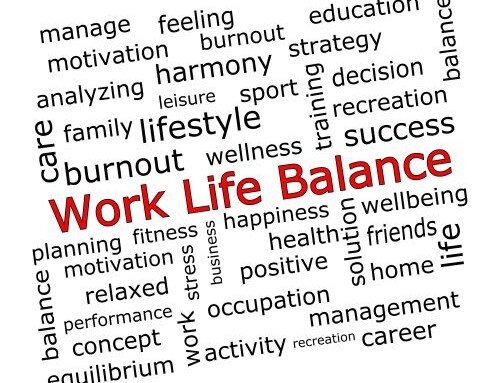When people experience an event that invokes fear on some level, they react in ways that are hard-wired into their DNA. Human beings are programmed to protect themselves in the event of a perceived threat, just like animals. The difference is human beings have evolved comparatively poorly in the way they react.
This is especially true in the current environment when the threat of an unknown virus is new, and the facts are still emerging. The volatile arguments taking place on both sides further erodes a clear view of the facts. Add to it the limited control people have over how the virus impacts them, and the combination creates the perfect storm of potentially damaging fear.
Make no mistake about it, this fear carries over into the workplace. It can wreak havoc on productivity and decimate morale, creating fault lines that threaten businesses with catastrophic ruin.
A Them-Versus-Us Mentality
It is not just anxiety that fear heightens. Moral judgments become harsher, making people less accepting of eccentricity. They take a tribalistic, conformist stance and exhibit a them-versus-us mentality. Take, for example, something as simple as wearing masks. For some, this is merely following safety precautions. For others, it feels like a violation of freedom. This mentality poses serious problems in the workplace, making it critical for leadership to understand this mindset and address it appropriately.
Technology Can Cause Harm
Advanced technology is a double-edged sword. On the one hand, it connects people in specific ways, even when they are physically separated. On the other hand, the over-exposure, and gaps that technology creates can cause anxiety. From customers being exposed to more vile and explicit information to managers being unable to get feedback in person from remote employees, technology leaves little to the imagination.
Technology can also disintegrate the traditional CEO role, shifting the c-suite structure to more distributed decision-making. This reframes the traditional leadership role into a team where everyone wants to be heard, valued, and drive the culture, mission, and purpose.
Fear Is Powerful
It is no coincidence that classic sales tactics utilize an approach of fear, uncertainty, and doubt. The methodology is simple: trigger fear, cast a shadow of uncertainty regarding decision making, and plant seeds of doubt. This approach became the gold standard of selling because playing on emotions – particularly fear – works.
Making fear even more intimidating is the fact that different people can have drastically different reactions to it:
- Someone watches a movie that features shark attacks. A few days later, while swimming in the ocean, they see what appears to be a fin in the distance. Even though shark attacks are not common, this person feels their heart racing and the onset of panic.
- A different person who grew up in a home where poverty was an issue works hard to provide a stable environment for their family as an adult. When a crisis threatens their job and all they have worked for, this person feels their stress levels skyrocket in response to even the most minor changes occurring in the workplace. Their performance at work suffers as a result.
- Someone recently faced a dire health issue that could have cost them their life. They are now making significant changes to their lifestyle, diet, activity levels, and stress levels to prevent a similar health emergency from occurring. Then a pandemic hit and they feel like they no longer have control over their health, causing fear to spiral.
Each one of these situations demonstrates different types of fear and the amplification of this emotion based on the potential impact it makes on the person’s life.
Understanding Fear and Its Impact
Leadership needs to understand how fear drives emotion and the impact it can make on their employees – because it will ultimately affect their business if left to run rampant. They should carefully think about the impact it will make on:
- Corporate culture – How will fear change the way that employees interact with each other?
- Employees – How will fear impact morale, motivation, and productivity?
- Key stakeholders – How will fear drive decision-making related to vendor relationships, risk management, and reaction time?
- Customers – How will fear influence buying decisions? How should leadership adapt the sales and marketing strategy to stand out from competitors?
Solutions for Combating Fear
To paraphrase Jack Canfield, fear is inevitable. The decision leadership must make is whether to resist it or lead it. The following solutions will empower leadership to take charge of the opportunities that fear creates:
- Focus on facts – not fiction, fantasy, or fear
- Control emotion – use emotional intelligence to understand their own feelings and address them and also read employees using their words, body language, facial expression, and voice inflections
- Ask open-ended questions without bias or judgment.
- Reinforce the areas that leadership can control as well as give employees ownership over some of that control
- Keep corporate culture from becoming toxic and avoid the them-versus-us mentality
- Proactively address fears such as job stability, stock availability, manpower, quality control, and customer service.
- Clarify perceptions that are inaccurate and do so immediately
PRO TIP: Keep an eye on the situation by monitoring social media, social listening, and actively watching for negative sentiments or comments.
While fear is certainly an intimidating foe, it can be managed. Leadership can keep the harmful effects of fear at bay by leveraging the strategies outlined above, ensuring that employees remain productive, motivated, and engaged.
Uncertain times call for strategic thinking. Contact Gavel International to be inspired with solutions that connect and engage your people.
This article was last updated on November 23, 2022






